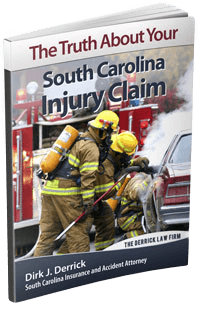Types of Truck Accident Injuries
Victims of truck wrecks commonly suffer a variety of severe injuries:
- Broken bones
- Whiplash
- Spinal cord damage
- Paralysis
- Eye injuries
- Burns
- Lacerations
- Scarring
- Traumatic brain injuries (TBIs)
- PTSD
Such injuries often require surgery and other expensive medical treatment as well as significant time off work, leading to costly claims for the insurance companies involved. If you lose a loved one in a fatal truck crash, you may file a wrongful death action against the at-fault driver.
Fighting With Insurance Companies
Because insurers are in business to earn profits, not to pay out costly damage claims, they’re likely to fight your expensive truck crash claim or to offer you an unfairly low settlement before you know the extent of your long-term medical needs. Before accepting an insurer’s settlement offer it is recommended to consult an attorney who can evaluate your claim and make a demand for reasonable compensation if it has not been offered.
There Will Be More Than One Defendant
Unlike a car accident in which there’s only one at-fault party from whom you may seek compensation for damages, a truck accident could involve one or more of several potential defendants who bear partial responsibility, including the following:
- The truck driver who negligently caused your crash
- The trucking company that employs the driver
- A truck repair service that fails to maintain a truck properly for safe operation
- A truck manufacturer or a parts manufacturer if defective equipment played a role in the wreck
- Loading dock personnel if improperly loaded cargo shifted or fell from a trailer and caused the accident
- A government agency if poor road conditions or faulty traffic signals contributed to the crash
- A liquor license holder or social host who served alcohol to a trucker in a DUI accident claim
Identifying all the defendants in your accident and determining their percentages of fault in order to demand fair compensation from each one is a difficult job best left to an experienced attorney while you’re recovering from your injuries.
How Your Lawyer Can Help
A truck crash lawyer can call in an accident reconstructionist to investigate your accident thoroughly and prove the percentages of fault of all defendants. Your attorney can also access crucial data from the truck’s “black box” recorder and dashboard camera, obtain the at-fault trucker’s driving record and logbooks or electronic logging device data, interview eyewitnesses, consult with your doctors to estimate your long-term medical needs, put a dollar amount on your pain and suffering to evaluate your case, demand reasonable compensation from all defendants’ insurers, negotiate fair settlements, file multiple lawsuits, and fight for you in court if necessary.

.jpeg) Any motor vehicle accident is a traumatic experience for the drivers and occupants of the cars involved in the crash. Even minor two-car fender benders in which injuries and property damage are minimal can be challenging for victims. Not only do they have to seek medical attention for their injuries and repair their cars, but they must also go through the process of filing damage claims against at-fault drivers’ insurance companies for medical bills, property damage, lost income, and pain and suffering. When an insurer does not offer a reasonable settlement, a victim might have to file a lawsuit and seek fair compensation in court. If you’re hurt in an accident that happens to involve multiple vehicles, the damage claim process is that much more complex because of the number of parties involved in the crash.
Any motor vehicle accident is a traumatic experience for the drivers and occupants of the cars involved in the crash. Even minor two-car fender benders in which injuries and property damage are minimal can be challenging for victims. Not only do they have to seek medical attention for their injuries and repair their cars, but they must also go through the process of filing damage claims against at-fault drivers’ insurance companies for medical bills, property damage, lost income, and pain and suffering. When an insurer does not offer a reasonable settlement, a victim might have to file a lawsuit and seek fair compensation in court. If you’re hurt in an accident that happens to involve multiple vehicles, the damage claim process is that much more complex because of the number of parties involved in the crash.
